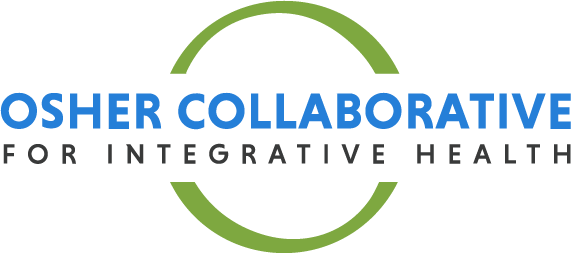2020 Press

December 16, 2020
Overcoming Barriers in Clinical Acupuncture Research: Translating Clinical Practice into Fundamental Science
Journal of Alternative and Complementary Medicine
The translation of insights derived from clinical practice into research presents unique challenges. This is especially the case in evaluating interventions in the management of chronic conditions, which respond to different strategies at different time points and require an interdisciplinary approach to treatment. Asking whether acupuncture as a monotherapy is effective overlooks the multifactorial nature of these problems. It misses the opportunity to explore whether synergistic treatment strategies provided by interprofessional care teams, which include acupuncturists, may have a significant impact on clinical outcomes. Read more.
December 10, 2020
This Neuroscientist Decoded the Brain Patterns of Meditators
Mindful
When we practice meditation, what’s really happening inside our brains? Neuroscientist and clinician Dr. Helen Weng is not only finding answers to this question but also pioneering a novel approach to the neuroscience of mindfulness. Read more.
October 10, 2020
Understanding the Mind and Theory of Mindfulness
Mindful by Design
Rev angel Kyodo williams invites the listener to get curious about starting a mindfulness practice. To help start the journey, Rev sits down with Dr. Helen Weng and Dr. Clifford Saron to introduce the theory and science of mindfulness, against the backdrop of their personal practices and research. Listen here.
October 2, 2020
Experts Expound on Interoceptive Processes
NIH Record
Feeling thirsty or tired? With every breath, heartbeat and hunger pang, there’s a vast, intricate maze of neural circuits communicating these signals and sensations between your organs and your brain. Research into these pathways and how they can be modulated by different practices and techniques—from yoga to electrical stimulation—can improve physical and emotional well-being. Read more.
September 3, 2020
Why Facebook May Be Affecting You Differently Now
Heathline
With all the instability in the world right now — from the COVID-19 pandemic and political upheaval to natural disasters — we’re constantly being bombarded by sometimes triggering information on our social media feeds. Read more.
June 26, 2020
Straight facts about Splenda and its affect on health
Business Insider
Many people turn to artificial sweeteners in an attempt to cut calories from sugar out of their diets and lose weight. However, some of these sugar substitutes have been controversial for decades. Read more.
June 21, 2020
Is soy bad for you? Experts say the health benefits likely outweigh any potential risks
Business Insider
Soy products are staples in many peoples' diets, especially vegetarians and vegans. However, there is controversy surrounding soy and its possible effects on hormones, cancer risk, and overall health.Thus, there are mixed opinions on whether soy is good or bad for you. Here's what the research says. Read more.
June 8, 2020
For Older People, Despair, as Well as Covid-19, Is Costing Lives
The New York Times
Earlier this month, a colleague who heads the geriatrics service at a prominent San Francisco hospital told me they had begun seeing startling numbers of suicide attempts by older adults. These were not cry-for-help gestures, but true efforts to die by people using guns, knives and repurposed household items. Read more.
June 3, 2020
No Virus Can Elimnate the Need for Medical Massage
Massage Magazine
Massage has always been a part of medicine. Chinese texts, Egyptian hieroglyphics and Hippocrates’ writings all leave evidence of how the “art of rubbing” was part of every eon’s respective health care toolkit. Read more.
April 10, 2020
The Quadruple Aim as a Framework for Integrative Group Medical Visits
Journal of Alternative and Complementary Medicine
Integrative group medical visits (IGMVs) are a compelling health service delivery innovation for complementary and integrative health care (CIH). As explored in the recent JACM special issue on group-delivered services, IGMVs create an opportunity to expand access to CIH. Group medical visits (GMVs) emerged at the intersection of several concerns in U.S. health care: rising prevalence of chronic health conditions, with notable disparities by race/ethnicity and socioeconomic status; extremely high health care costs compared with other industrialized countries, and high rates of clinician burnout. Read more.
March 28, 2020
Ageism Is Making the Pandemic Worse
The Atlantic
Envision, for a moment, a world in which the rapidly spreading coronavirus is mostly infecting people under the age of 50. Imagine that the death toll is highest among children and that, as of today, the United States had reported more than 104,000 confirmed cases and at least 1,700 deaths, mostly among middle schoolers. Imagine that scientists suspect elders are at lower risk based on past exposure to similar viruses. How would you react to a disease that was mostly killing young people planet-wide. Read more.
March 27, 2020
Coronavirus Reveals Just How Little Compassion We Have for Older People
Vox
As a human being, I have a range of reactions to their defiance: concern, frustration, and compassion. As a doctor whose specialty is geriatrics, I try to weigh the many, complicated reasons an older person might be out with the significant reasons they — and all of us — should reconsider going outside. In these unprecedented times, individual liberties are at odds with the well-being of our species, and for most people, old and young, our present is pitted against our future. Read more.
March 23, 2020
Could a Wearable Health Device Predict Coronavirus?
KQED
Doctors and nurses at UCSF and San Francisco General Hospital will begin testing a wearable health device Monday that could indicate they are becoming ill from the coronavirus even before they feel sick. Read more.
March 22, 2020
Predicting coronavirus? SF emergency workers wear state-of-the-art rings in new study
San Francisco Chronicle
At least 2,000 San Francisco emergency medical workers will begin wearing rings this week that track their body temperature and other vital signs in a first-of-its-kind study to try to identify the early onset of COVID-19 and help curb its spread. Read more.
Current | 2021 | 2020 | 2019 | 2018 | 2017 | 2016 | 2015 | 2014 | 2013 | 2012 | 2011 | 2010

